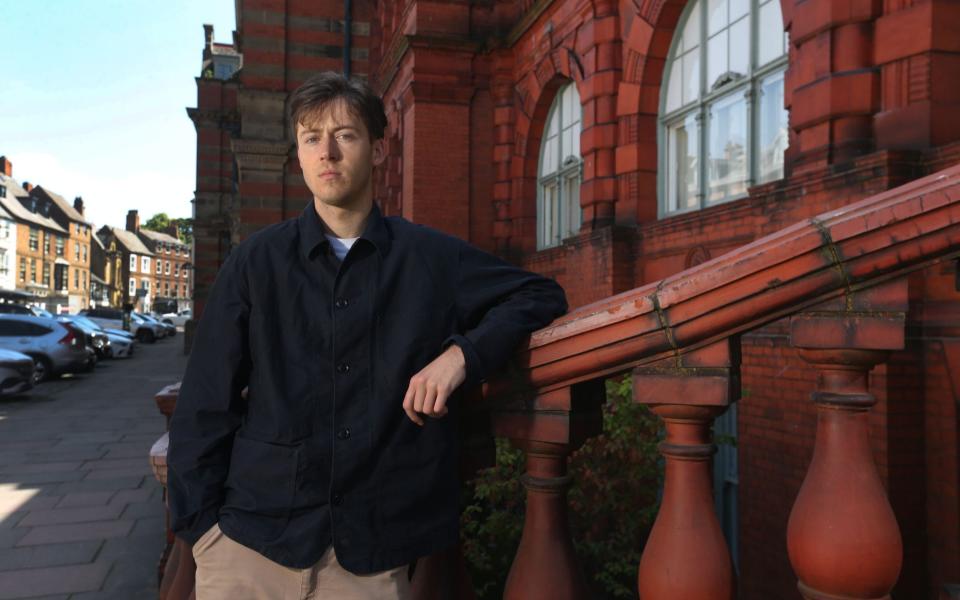‘Spending 16 hour days in the library, knowing my work wouldn’t be marked was so demoralising’

This ought to be an exciting time of year for students graduating from university. In the usual run of things, it is when they anxiously await their grades and plan for the rest of their lives. Future studies, jobs, whole career paths can hang on the difference between a first and a 2.1, or a third and a fail. Universities vary in when they release results but they are usually all out by the first week of July.
This year things are different. It looks like some of them won’t even get a mark at all, let alone a pass or fail. The latest front in the ongoing industrial action by British academics, which has been simmering, on and off, for five years, is to leave exam papers unmarked while they are on strike. As a result, thousands of students up and down the country face the prospect of graduating with a provisional grade or not getting one at all. It is yet another period of limbo for a generation that has had its education repeatedly disrupted, first by the pandemic and then by academic upheaval.
One of the students affected is Ben Hutchison, a modern languages student at Durham in his fourth and final year.
“It’s incredibly frustrating,” he says. “The university – and I think this is the case nationally – seems blase about what’s happening, and is keen to paint itself as the good guy. But equally doesn’t demonise the strikers. They just don’t have a clear plan. That’s the most irritating thing.”
The students feel in limbo. Hutchison has a place on Teach First, the scheme that encourages graduates to complete a two year teaching qualification, for later this year. “They sent me an email saying we need to know your degree, and I’ve had to tell them that I don’t know if I’ll know for a few months. There’s no indication of when I’ll know. I have a friend who’s been offered a Civil Service fast track job, and he has the same thing – he doesn’t know when he can tell them. Both of these are jobs that require a degree.”
Hutchison is far from alone. Lily Owen is in her final year of combined honours social sciences: history, business, politics and sociology. “My predicament is I’m in the large group of Durham students who will be graduating without a degree,” she says. “It’s not an attractive prospect. I feel absolutely awful. I’ve been spending 14-16 hours a day in the library to submit work that was as good as I wanted it to be, knowing that it wouldn’t be marked. As students our whole world is academic work and all that work was just being made futile and neglected. It was so demoralising. The university kept saying no student will be disadvantaged [in their degree classification], but they kept missing the point. Attitudes, motivations and mental health were suffering.”
Owen is hoping to enter the legal profession. She argues that even if her ultimate degree class is not disadvantaged, she is at a disadvantage in this job hunt while she’s waiting.
“It’s such a competitive zone anyway, and it means I’m applying for graduate jobs against people who graduated in the past five years and have five years,” she says. “I can’t see, as an employer, how it’s logical to employ someone who doesn’t have a degree over someone who does. That’s a massive worry. I seem to be in such a disadvantaged position, yet Durham maintains that nobody’s disadvantaged. It’s ludicrous.”

Many Durham students found out about the marking situation via an email a month ago, which caused widespread consternation. Acknowledging their concerns, the interim pro Vice Chancellor, Professor Tony Fawcett, said: “We sympathise with the frustrations of those of you who have urged us in recent weeks to resolve the dispute. The UCU mandate is at a national level and local settlement is therefore not an option.”
A similar situation is being played out across the country. Durham is only one out of 144 universities across the country affected by the latest round of strikes. While the railway, teacher and doctor strikes may attract more attention, action by academics has been running, on and off, for five years, making it the longest running of recent industrial actions. The marking boycott came about in April, after the UCU – the University and College Union, which is behind the strikes – accepted a deal on pensions but rejected a deal on pay and working conditions. In response to the marking strike, some universities have taken the dramatic step of withholding pay from their staff.
It’s a gordian knot of a problem, with several bodies involved. As well as the individual university bodies and their students there is the Universities and Colleges Employers Association and Universities UK, which represent universities.
“Withholding pay from the same staff who usually work hard for their HE institutions and students is an incredibly difficult thing to do,” said Raj Jethwa, the CEO of the UCEA. “But not withholding pay would be a far more difficult thing to do. Not withholding pay would be allowing staff to target and impact students negatively without challenge or protection. Boycotting marking and assessment is a choice made by UCU and in turn by its individual members. Students have no such choice. This is why HEIs must reluctantly withhold pay from staff targeting students.”
In a statement, Universities UK said: “It is disappointing that the UCU is pressing ahead with a marking and assessment boycott when so much positive progress has been made on the disputes on both pay and pensions,. We know students will be concerned about the impact this could have, but universities will be doing everything they can to ensure that the impact from any pockets of disruption is minimal, and that students are able to move on to the next stage of their education and lives.”
Many students, including Hutchison and Owen, expressed sympathy with the striking academics – many of whom they are friends with. Some academics support the action but, due to the pay reduction, cannot afford to take part. Other students, however, say support for the union is softening as the dispute wears on.
“Support for the UCU is waning,” and the lecturers,” says Charlie Gaisford, a final year politics student at Bristol. “I started off with a lot of sympathy for the UCU. I think they deserve better pay. But I am increasingly losing the will to live with the union. They’ve just passed motions saying they want to stop saying weapons to Ukraine. It’s a bizarre thing to talk about at a higher education conference, and misses the point of what they should be talking about, which is how they’re going to resolve this dispute. Jo Grady [the general secretary of the UCU] said it was the benefit of students and future students to ensure a good quality of teaching. But that doesn’t change my position now. I’ve paid £45,000 in tuition and maintenance loans, and I’ve got no degree to show for it.”
It’s not just on the UCU, he adds. “The universities need to come back round the table. There needs to be a middle ground in this embittered row. We need to find a discussion suitable for both parties so we can leave students out of this. It’s all a mess, and it’s hurting students who are stuck in the middle.”

A Durham University spokesperson said:
“All of our students who have passed their exams will graduate and will get all of their marks. There may be some delays to some marks due to the decision of the UCU to engage in a marking and assessment boycott directly targeted at students.
“We are doing all we can to reassure and limit disruption to our students. We have academically robust and clear plans in place to ensure that, in every possible case where there are missing marks, we can provide an interim degree classification in time for summer graduations.
“It is highly regrettable that the UCU have chosen to take this course of action at a national level.
“We have communicated our plans, as well as the extensive support in place, in detail and repeatedly with our students, including joint communications with Durham Students’ Union who have been supportive of our approach.
“We have urged students to pay close attention to these communications from the university and to disregard information from other non-official sources.”
With so much uncertainty remaining, it may not be much consolation to Hutchison, Owen and the thousands of others affected by the marking boycott. There are signs the UCU is not united. [The UCU was approached for comment.] Grady has been criticised for being outspoken on social media. Motions of no-confidence in her leadership have been tabled. For the time being, however, the university pay dispute remains a first class problem: especially for students hoping to move on with their lives.

 Yahoo Sports
Yahoo Sports 